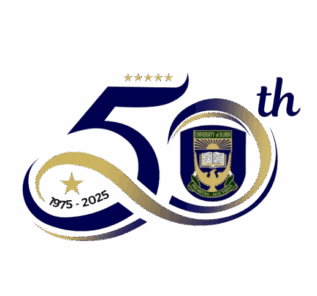By Abubakar Imam and Mustafa Abubakar
The immediate past Deputy Vice Chancellor (Management Services), Prof. Suleiman Folorunsho Ambali, has stressed the need for quality mentorship in academic settings.
Prof. Ambali, who is also the University Project Manager for Ranking Implementation, gave this advice recently while delivering a lecture, titled “Cross-Generational Mentorship: Bridging Traditional Academic Values with Contemporary Realities,” at the 7th edition of the commencement ceremony of the Faculty of Life Sciences, University of Ilorin at the New Science Lecture Theatre (NSLT). The event was also used to celebrate a total of 41 higher-degree graduates, comprising 13 Ph.D. holders and 28 Master degree recently produced by the Faculty.
The former Deputy Vice Chancellor stated that while the academic environment continues to evolve rapidly, traditional scholarly values such as rigour, ethical conduct, discipline, patience, and methodological thoroughness remain indispensable.
According to him, true academic progress does not emerge from generational competition but from a strategic fusion of strengths of the old and the young.
Prof. Ambali, who teaches at the Department of Veterinary Pharmacology and Toxicology, noted that senior academics possess deep institutional memory, resilience, and disciplinary mastery, while younger scholars bring digital fluency, global academic exposure, collaborative research habits, advanced data tools, and innovative teaching methodologies.
He stressed that knowledge in academia flows in both directions: senior faculty members guide younger colleagues in ethical research, career progression, and institutional culture, while younger academics help older colleagues adopt digital tools, embrace open science practices, and apply contemporary pedagogical approaches.
Prof. Ambali identified pride, fear, and assumptions, rather than lack of willingness, as the biggest obstacles to effective mentorship.
“Older academics may fear appearing outdated; younger ones may fear looking inexperienced or incompetent,” he added.
He emphasised the need for humility and safe mentoring environments where senior scholars can comfortably learn from younger colleagues and junior staff can ask questions without intimidation.
Prof. Ambali, who is also a former Dean, Faculty of Veterinary Medicine, stressed that mentorship must be valued institutionally, not left as a silent act of goodwill as he advocated cross-generational research teams, routine thematic mentorship circles, protection of mentorship time, recognition of mentorship in academic evaluations, and open acknowledgement of mutual learning.
The Guest Lecturer also explained that while modern knowledge systems embrace open science, data sharing, and rapid dissemination, these innovations must coexist with academic integrity, accuracy, and ethical responsibility, particularly in the Life Sciences, where poor or rushed research poses risks to public health, agriculture, biodiversity, and the environment.
Prof. Ambali called on universities to honour their scholarly heritage while embracing the future, fostering curiosity over defensiveness, and building institutional systems that reward humility, collaboration, and life-long learning.
Speaking earlier, the Dean of the Faculty, Prof. R. O. Arise, expressed appreciation to Prof. Ambali for accepting the invitation without hesitation despite his demanding schedule.
The Dean described the programme as a celebration of perseverance, intentional mentorship, independent research, and scholarly excellence.
Prof. Arise also congratulated the higher degree graduands, urging them to continue the culture of mentorship and excellence as they progress in their careers.
The event was attended by distinguished scholars, Heads of Departments, Professors, academic staff, technical and administrative staff, and students of the Faculty of Life Sciences, among others.
